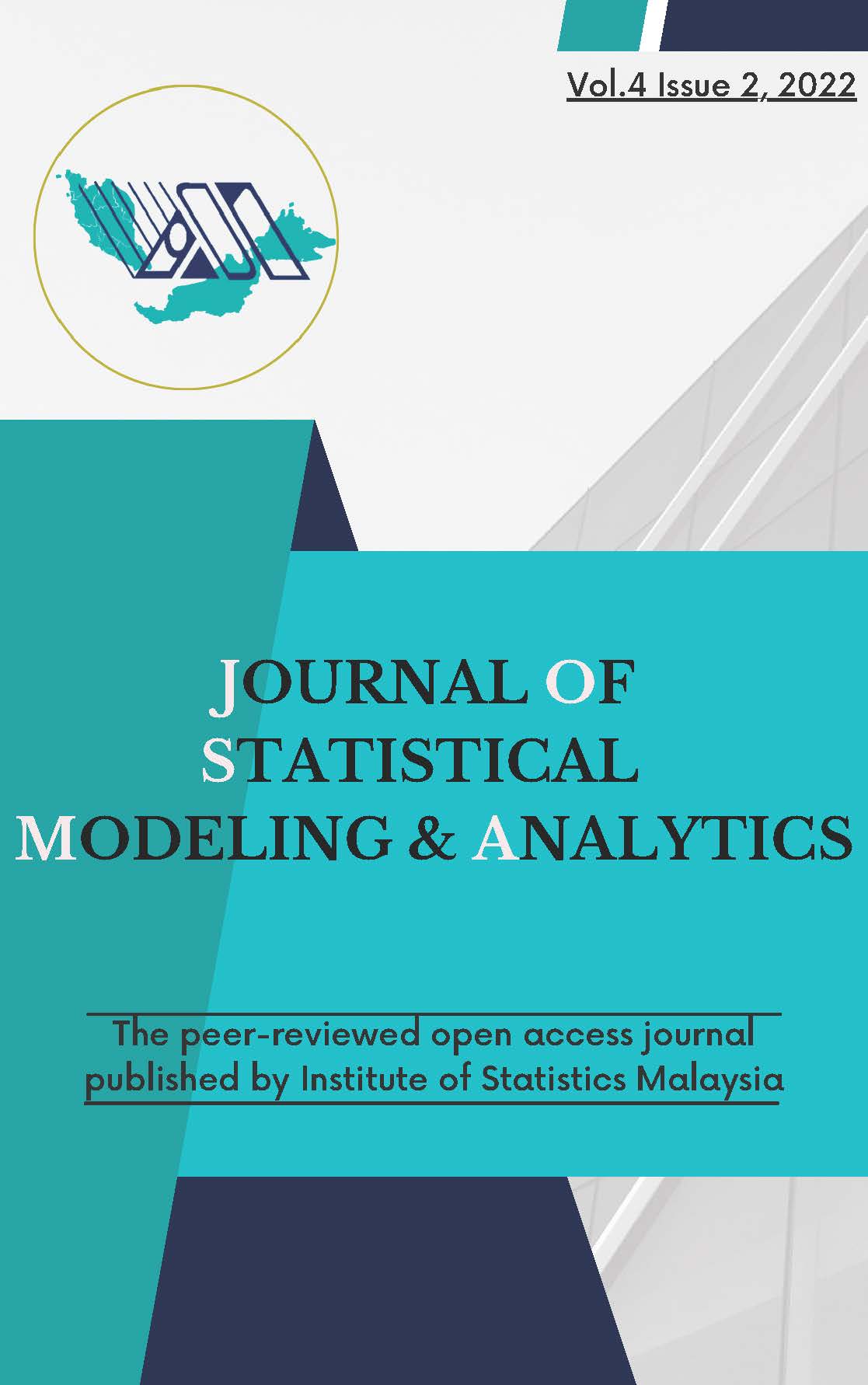New Discrete Frequency Table with Application to Real Data
DOI:
https://doi.org/10.22452/josma.vol4no2.5Keywords:
Discrete Frequency Table, Discrete data, Discrete Distributions, Mode, SimulationAbstract
One way to make sense of data is to organize it into a more meaningful format called frequency table. The existing univariate discrete frequency table is simple to construct, easy to understand and interpret. However, when the number of elements in the data is substantial, it results in a long table that can be difficult to handle. This article presents a new discrete frequency table. The proposed frequency table is described, using simulations performed on five different discrete distributions, and real data. The new frequency table improves the existing table in various ways. This includes how the data with a large number of elements can be handled, how the mode of the data can be better estimated, and how the essential features of the data can be better revealed.






